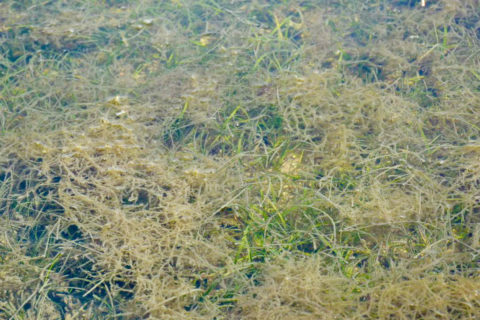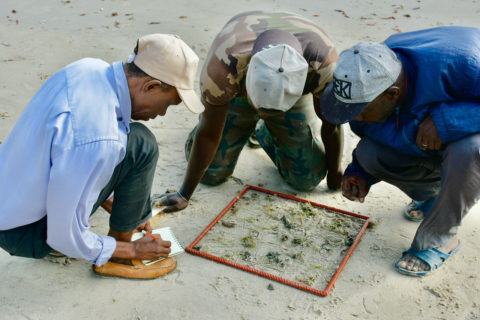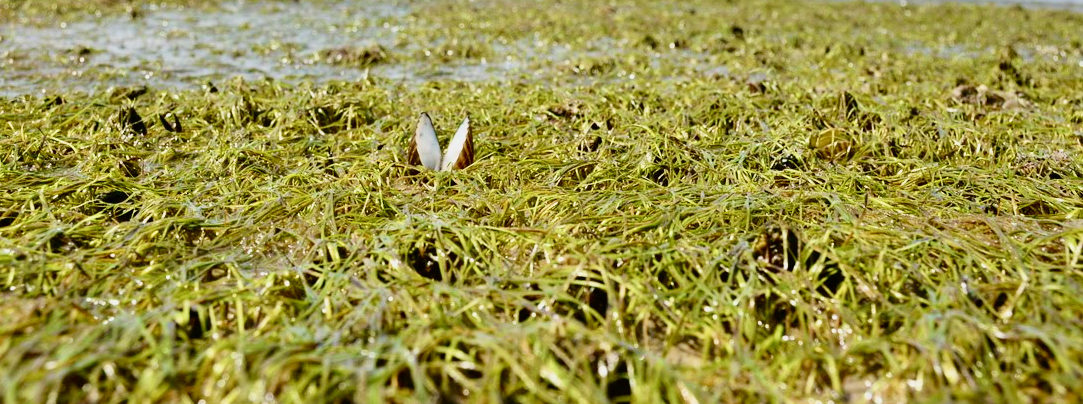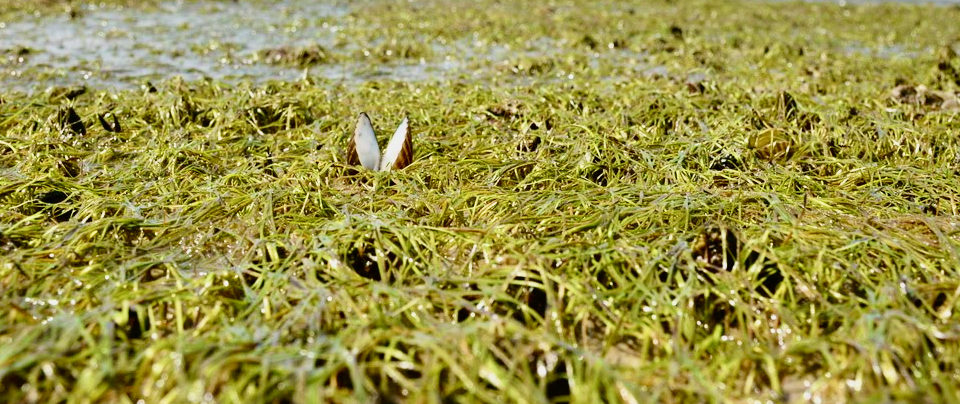Cabo Verde is the 7th country to update its nationally determined contributions (NDCs) in 2021, with the particularity of integrating seagrass beds in the efforts to reduce its national emissions and adapt to the effects of climate change.

Seagrass bed
This is very good news for all our allies and friends who are working to improve knowledge and recognition of the importance of these special ecosystems.
Seagrass beds are one of the most important habitats in the ocean. They serve as nurseries and feeding grounds, protecting our coasts and storing carbon, among other benefits. At the same time, they are one of the least known ecosystems in the world and are in urgent need of protection. One of the main reasons for the lack of protection of seagrass beds is the lack of information about some of the most basic aspects of their distribution and health.
Since 2017 in collaboration with GRID Arendal and the Abidjan Convention, we have been working to create scientific knowledge and develop management capacity for seagrass beds in West Africa, through the MAVA Foundation-funded ResilienSEA (R’SEA) project.

Seagrass training of trainers
This project aims to strengthen the knowledge, expertise and capacity of local, national and regional stakeholders in seven West African countries to improve the protection of seagrass beds. The project is being carried out locally through the active work of National Implementation Teams (NITs) in Cabo Verde, Mauritania, The Gambia, Guinea, Guinea-Bissau, Senegal and Sierra Leone.
The NITs conducted extensive research along the West African coast to map the presence of seagrass in the region. In each of the seven countries, data collection has identified pilot sites where research, management and capacity building activities are being conducted.
The results of this research will contribute to advocacy to improve their protection and recognition of the services they provide.

